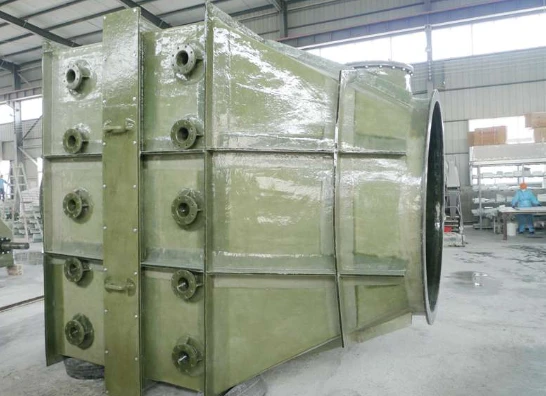
-
 Afrikaans
Afrikaans -
 Albanian
Albanian -
 Amharic
Amharic -
 Arabic
Arabic -
 Armenian
Armenian -
 Azerbaijani
Azerbaijani -
 Basque
Basque -
 Belarusian
Belarusian -
 Bengali
Bengali -
 Bosnian
Bosnian -
 Bulgarian
Bulgarian -
 Catalan
Catalan -
 Cebuano
Cebuano -
 China
China -
 China (Taiwan)
China (Taiwan) -
 Corsican
Corsican -
 Croatian
Croatian -
 Czech
Czech -
 Danish
Danish -
 Dutch
Dutch -
 English
English -
 Esperanto
Esperanto -
 Estonian
Estonian -
 Finnish
Finnish -
 French
French -
 Frisian
Frisian -
 Galician
Galician -
 Georgian
Georgian -
 German
German -
 Greek
Greek -
 Gujarati
Gujarati -
 Haitian Creole
Haitian Creole -
 hausa
hausa -
 hawaiian
hawaiian -
 Hebrew
Hebrew -
 Hindi
Hindi -
 Miao
Miao -
 Hungarian
Hungarian -
 Icelandic
Icelandic -
 igbo
igbo -
 Indonesian
Indonesian -
 irish
irish -
 Italian
Italian -
 Japanese
Japanese -
 Javanese
Javanese -
 Kannada
Kannada -
 kazakh
kazakh -
 Khmer
Khmer -
 Rwandese
Rwandese -
 Korean
Korean -
 Kurdish
Kurdish -
 Kyrgyz
Kyrgyz -
 Lao
Lao -
 Latin
Latin -
 Latvian
Latvian -
 Lithuanian
Lithuanian -
 Luxembourgish
Luxembourgish -
 Macedonian
Macedonian -
 Malgashi
Malgashi -
 Malay
Malay -
 Malayalam
Malayalam -
 Maltese
Maltese -
 Maori
Maori -
 Marathi
Marathi -
 Mongolian
Mongolian -
 Myanmar
Myanmar -
 Nepali
Nepali -
 Norwegian
Norwegian -
 Norwegian
Norwegian -
 Occitan
Occitan -
 Pashto
Pashto -
 Persian
Persian -
 Polish
Polish -
 Portuguese
Portuguese -
 Punjabi
Punjabi -
 Romanian
Romanian -
 Russian
Russian -
 Samoan
Samoan -
 Scottish Gaelic
Scottish Gaelic -
 Serbian
Serbian -
 Sesotho
Sesotho -
 Shona
Shona -
 Sindhi
Sindhi -
 Sinhala
Sinhala -
 Slovak
Slovak -
 Slovenian
Slovenian -
 Somali
Somali -
 Spanish
Spanish -
 Sundanese
Sundanese -
 Swahili
Swahili -
 Swedish
Swedish -
 Tagalog
Tagalog -
 Tajik
Tajik -
 Tamil
Tamil -
 Tatar
Tatar -
 Telugu
Telugu -
 Thai
Thai -
 Turkish
Turkish -
 Turkmen
Turkmen -
 Ukrainian
Ukrainian -
 Urdu
Urdu -
 Uighur
Uighur -
 Uzbek
Uzbek -
 Vietnamese
Vietnamese -
 Welsh
Welsh -
 Bantu
Bantu -
 Yiddish
Yiddish -
 Yoruba
Yoruba -
 Zulu
Zulu
Customized Fiberglass Fittings for Enhanced Performance and Durability in Various Applications
Fiberglass Customized Fittings Revolutionizing Design and Durability
In today's world where customization and durability are key components in industrial design, fiberglass customized fittings have emerged as an innovative solution catering to various industries' needs. From construction to wastewater management, fiberglass fittings provide exceptional performance, tailored designs, and long-lasting resilience, positioning themselves as indispensable components for modern applications.
What Are Fiberglass Customized Fittings?
Fiberglass, or glass-reinforced plastic (GRP), is a composite material made by combining glass fibers with a resin matrix. This unique combination results in a lightweight yet incredibly strong material that has become increasingly popular for manufacturing fittings such as pipes, valves, and flanges. Customized fittings are specifically designed to meet unique specifications and requirements of various applications, thus providing unparalleled flexibility and versatility.
In industries such as oil and gas, chemical processing, and water treatment, the ability to create custom shapes and sizes is vital. Fiberglass fittings can be tailored to fit specific pipe dimensions, ensuring a perfect fit and optimized flow. Furthermore, the material can be molded into complex geometries, allowing for innovative designs that traditional materials, such as metal or PVC, cannot achieve.
Benefits of Fiberglass Customized Fittings
1. Corrosion Resistance One of the most significant advantages of fiberglass fittings is their incredible resistance to corrosive substances. Unlike metal fittings that can rust or corrode, fiberglass can withstand harsh chemicals and environmental conditions, extending the lifespan of the components and reducing maintenance costs.
2. Lightweight yet Strong While fiberglass fittings are considerably lighter than their metal counterparts, they offer comparable or superior strength. This attribute simplifies transportation, handling, and installation processes, making it easy for construction and maintenance personnel to manage large projects efficiently.
fiberglass customized fittings

3. Cost-Effectiveness Although the initial investment in fiberglass fittings may be higher than traditional materials, the long-term savings can be substantial. The extended lifespan, reduced maintenance needs, and energy efficiency make fiberglass fittings a cost-effective solution in the long run.
4. Customizable The ability to customize fiberglass fittings to meet specific application requirements is a game-changer for many industries. This adaptability enables engineers and designers to create components that precisely fit their needs, ensuring optimal performance and functionality.
5. Thermal Insulation Fiberglass inherently possesses excellent thermal insulating properties, making it useful in applications where temperature control is crucial. This aspect not only protects sensitive processes but also contributes to energy efficiency by reducing heat loss.
Applications of Fiberglass Customized Fittings
The versatility of fiberglass fittings allows them to be utilized in a plethora of industries. In the chemical processing sector, these fittings can safely transport aggressive substances while minimizing the risk of leaks. In the construction industry, fiberglass is used for piping systems in residential and commercial buildings due to its lightweight and durable nature.
Moreover, in wastewater treatment facilities, fiberglass fittings are crucial for managing corrosive environments while ensuring efficient fluid flow. They are also gaining traction in the renewable energy sector, particularly in wind turbine installations where lightweight components are essential for efficiency and structural integrity.
Conclusion
Fiberglass customized fittings represent a significant advancement in material technology, offering unparalleled benefits across various industries. Their unique combination of durability, customization, and cost-effectiveness makes them an ideal choice for engineers and designers looking to enhance their projects' efficiency and longevity. As industries continue to evolve and require specialized solutions, fiberglass fittings will undoubtedly play a crucial role in shaping the future of product design and manufacturing, meeting the demands of a rapidly changing environment.









